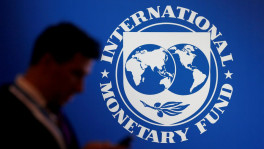To The Oppressors of The Past: It is time to pay the dues or at least acknowledge it
It takes a great deal of political courage and goodwill to recognise the mistakes of the past. But is making an apology sufficient?

In 1904, The Herero tribe in German South-West Africa (as it was formerly known) rebelled against the settler Germans for stealing their women, their cattle and their lands. They ended up killing 123 German settlers. This tiny victory even encouraged the smaller Nama tribe to join their cause in 1905. But their triumph over the Germans was short-lived.
What followed was a brutal retaliation from the German settlers who launched an extermination campaign and murdered around 60,000 Herero and 10,000 Nama people from 1904 to 1908. Consequently, the Herero population plummeted to only 7% of the Namibian population from around 40% at the start of the 20th century.
After decades of denial and repeated refusal, Germany, in a momentous declaration on May 28, officially apologised to Namibia for its massacre of the Herero and the Nama tribe and announced a financial aid worth €1.1 billion.
Coincidentally on the same day, four city councillors in Tulsa, Oklahoma were proposing that the city council officially apologise and pledge to make amends for the 1921 Tulsa Race Massacre addressing the centennial commemoration of the event on May 31-June 01, 2021.
It appears that a colonial reckoning is underway. Whether it has authentic motivations or not, Germany's efforts to address its colonial past and the roots of its riches should be appreciated.
But the case for other European countries is not that encouraging.
Anywhere north-west of the Mediterranean - particularly in the UK - any discussion regarding colonialism is frowned upon, thanks to the carefully white-washed curriculum that woefully fails to address its colonial past.
Even when the topic does come up, the Europeans present themselves as benefactors of the colonies instead of plunderers. That is, the colonial powers were only sharing their knowledge and riches with some inferior civilisations and they should be thankful for their colonisation.
As expected, such 'exceptionalist' sentiments bear little to no truth. A few examples should suffice here.
When the Europeans first arrived in Latin America in 1492, the region was inhabited by approximately 50 to 100 million people. By the 1600s, that population plummeted to only about 3.5 million. The rest either succumbed to foreign diseases brought in by the settlers, were sold into slavery or got expelled to hostile territories where they starved to their deaths. It is equivalent to the holocaust if Hitler could do it seven times over.
But it is not only about the purge; it is also about plunder.
Between 1503 and 1660, the Europeans stole 16 million kilograms of silver equivalent to three times the European reserves of metal at that time. By the 1800s, over 100 million kilograms of silver had been shipped to Europe which fuelled the industrial revolution and flourished the European economy. In 2021, 100 million kilograms of silver, adjusted for inflation, would be valued at a whopping $165 trillion.
If you incorporate the free hours of slave labour shipped over the Atlantic to the American colonies, valued at US minimum wage, that would be worth $97 Trillion today.
Similarly, before British colonialism, the Indian subcontinent constituted 27% of the global GDP. When they left that ratio came down to below 4%.
Not to mention, they provoked ethnic clashes with their 'divide and rule' policy, they reorganised the infrastructure in these colonies to suit their economic system till the end of time. They redrew the map on ethnic lines that divided these nations in an irreversible manner resulting in most of the conflicts that last to this day (e.g., Israel-Palestine conflict, India-Pakistan rivalry and the occupation of Kashmir etc.)
Even though European curriculums do not include these facts in their textbooks, governments are beginning to acknowledge their colonial past.

Just a few days ago in Canada, the bodies of 215 indigenous children (as young as three-years-old) were found beneath the Kamloops Indian Residential School. These children were taken away from their parents for so-called 're-education' purposes. Canadian Prime Minister Justin Trudeau acknowledged that it was a painful reminder of a dark and shameful chapter in the nation's history.
Recently French President Immanuel Macron also acknowledged the role of France in the Rwandan genocide citing that France should have been more proactive and the country did ignore the signs. However, he also argued that the French government did not assume the role of an accomplice.
The Labour Party in Britain also vowed to investigate its colonial past if it came to power. In 2019, Belgium apologised for its mistreatment of Congolese children during its brutal colonisation of the African country.
But is making an apology sufficient?
Well, it is a start. But if you ask anyone from the post-colonial states, they would say an apology means next to nothing as long as these countries do not make reparations or substantial changes in their curriculum acknowledging the fact that the roots of their wealth lie in their colonies.
After a July 2015 speech by Indian MP Shashi Tharoor at the Oxford Union, the demand for reparations from colonial powers gained some ground. In a book published later titled 'An Era of Darkness', Tharoor claimed that Britain did not even have to pay the actual amount of reparation owed to the country, rather just pay a sum of 1 pound per year as a symbolic gesture of its acknowledgement.
But none of the countries except for Germany have ever agreed to pay any form of reparations to former colonies.
Some pundits argue that reparations would not really help or empower anyone and would rather be used by autocratic leaders as a form of propaganda and whatnot. But as Tharoor argues reparation is not primarily a tool to empower communities in the colonies but rather a tool for the colonial states to atone for their crimes.
Other pundits may argue that these countries have paid sufficiently in development aids to former colonies. But there is a major problem with this argument. Even if we assume that the amount of development aid given to these countries is tantamount to that stolen by colonial powers, financial aid is considered as an act of generosity and not reparation. It does not involve an admission of guilt, let alone an acknowledgement of the crimes committed by these countries.
Speaking of admission of guilt, Pakistan still has not acknowledged its discriminatory treatment of Bangladeshi citizens before 1971 or paid reparation in any form or apologised for its genocide of Bangladeshi people.
But why is it so difficult for these countries to apologise for their colonial past and why are some countries beginning to acknowledge their past?
Colonialism is a highly political issue. Most right-wing, centre-right political parties often cater to the white man's guilt as a political strategy. Whenever some centre-left or left-wing parties attempt to acknowledge their colonial pasts, the discourse often gets hijacked by hyper-nationalistic innuendos.
When the Labour Party vowed to investigate its colonial past (not pay reparations or apologise, just investigate), politicians like Nigel Farage spoke out against it saying the British citizens were not responsible for the crimes of the past generations.
Whenever there are talks of paying reparations to the African-American communities in the USA, the Republicans go on Fox News and argue that the condition of the Black communities have already been improved and there is no need to pay reparations now.
Both Nigel Farage and the Republicans' voter base are primarily white working-class males and catering to their insecurities can be the golden ticket to power.
Hence, it takes a great deal of political courage and goodwill to recognise the mistakes of the past. Therefore, it is imperative that we appreciate the gestures and efforts by countries like Germany to acknowledge their colonial past. Because if one of the colonial superpowers comes forward, others may follow out of peer pressure. Even if they do not pay reparations, an apology would sure be nice.


 Keep updated, follow The Business Standard's Google news channel
Keep updated, follow The Business Standard's Google news channel
















